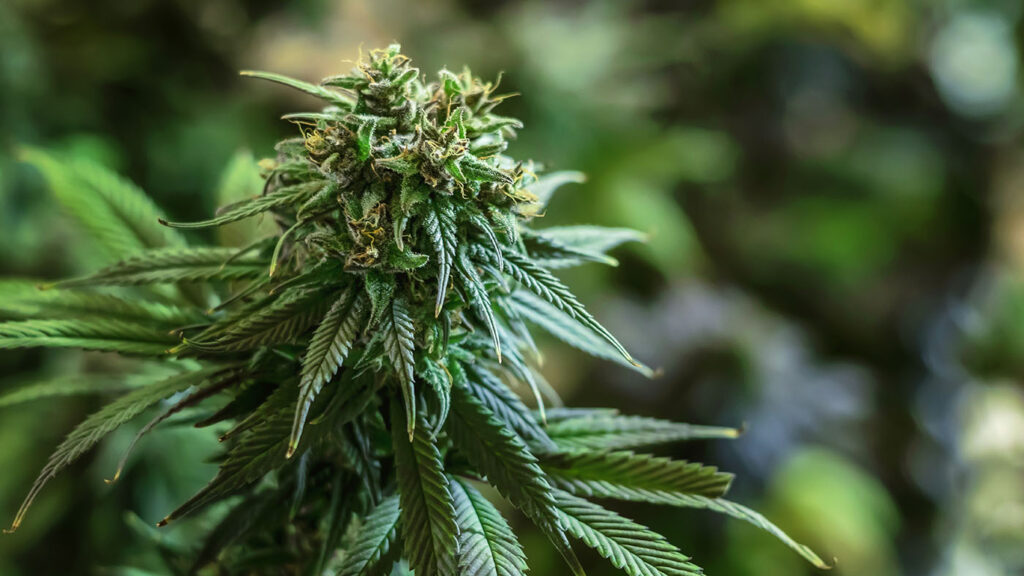Estimated reading time: 1 minute
Table of contents

Introduction
New Hampshire remains the lone state in New England without an adult-use cannabis program. Despite bipartisan efforts in the General Court, unresolved differences between the House and Senate have left the state at an impasse. As 2025 approaches, the future of cannabis legalization in New Hampshire hangs in the balance, influenced by ongoing legislative proposals and a significant change in governorship.
Legislative Developments
Last year, both chambers of New Hampshire’s legislature showed momentum for reform. A bipartisan-backed legalization bill originated in the House, only to be amended by Senate lawmakers. The Senate’s version featured a lower possession limit, a state-run “franchise model” for dispensaries, and THC limits for edibles. Although the Senate voted 14-10 for the amended bill, the House ultimately rejected these changes during the conference committee stage. This disagreement has kept the state without an adult-use program, setting the stage for a renewed legislative push in the current session.
Policy Proposals and Options
This year, the House appears to be back in the driver’s seat with three legalization bills on the table:
- House Bill 75: Sponsored by Republican Rep. Kevin Verville and passed on February 20, this bill is the least permissive. It seeks to legalize cannabis for adults 21 and older but stops short of establishing a licensed market for commercial cultivation and dispensary sales. Additionally, it does not provide for home grows.
- House Bill 186: Proposed by Democratic Rep. Jared Sullivan, this bill would legalize cannabis for those 21 and older while also creating a licensed, taxed, and regulated market for commercial operators.
- House Bill 198: Also introduced by Rep. Sullivan, this proposal would legalize cannabis for adults 21 and older and allow for home cultivation, though it does not set up a commercial market for cultivation and sales.
Each proposal reflects different approaches to legalization, underscoring the diverse opinions within the legislature about the best path forward.
Governing Dynamics and the Future of Reform
Despite the bipartisan support within the General Court, the outlook for adult-use cannabis reform in New Hampshire is clouded by a change in leadership. Republican Gov. Kelly Ayotte, who assumed office in January, has consistently opposed adult-use cannabis legalization. During a gubernatorial debate on New Hampshire Public Radio in October, she expressed concerns about the potential negative impacts on youth mental health, road safety, and addiction issues. Her stance has led some lawmakers, including House Majority Leader Jason Osborne, to suggest that the opportunity for reform may have passed. Osborne noted that previous sessions under the former governor had offered a chance to move forward, but those opportunities were not seized, implying that a return to legalization might be unlikely for the next decade.
Conclusion
As New Hampshire gears up for the 2025 legislative session, the state stands at a crossroads. With multiple legalization bills under consideration and a clear divide between the legislative push and executive opposition, the future of cannabis reform remains uncertain. The evolving political landscape, marked by strong legislative proposals and a resistant executive branch, underscores the challenges New Hampshire faces in joining its neighbors in establishing an adult-use cannabis program. The coming year will be critical in determining whether New Hampshire can overcome these obstacles and finally embrace comprehensive cannabis legalization.
Cannabis Legalization New Hampshire 2025 FAQs
Medical marijuana in New Hampshire is legal, while recreational cannabis is decriminalized but still illegal.
As of December 2024, New Hampshire is the only state left within the New England and North-East corner area of the USA yet to legally allow recreational cannabis.
Yes. Access to New Hampshire dispensaries is limited to qualified patients and caregivers who are registered with the state’s Therapeutic Cannabis Program and visiting patients who are registered with a medical cannabis program in another U.S. state or Canada.
In New Hampshire, medical marijuana patients must be 18 or older to purchase medicine legally from a dispensary. Minors must have a caregiver aged 21 or older purchase it on their behalf.
As of 3/2025, there are 7 cannabis dispensaries in New Hampshire. These are all alternative treatment centers (ATCs).
Additional Resources
Free eBooks For Cannabis Business Success
Latest Articles
- Missouri Cannabis Licensing & Business Opportunities 2026Missouri has established itself as the premier success story for cannabis in the Midwest, evolving from a standard medical regime to a high-volume adult-use market that exceeded $1.52 billion in annual sales in 2025. As the market enters the 2026–2027 biennium, the landscape is shifting from rapid expansion toward operational maturation and specialized entry.
- North Carolina Cannabis Licensing & Business Opportunities 2026North Carolina remains one of the final significant jurisdictions in the United States without a comprehensive medical or adult-use cannabis program. However, the 2026–2027 biennium is projected to be the most consequential period in the state’s cannabis history. Driven by the formation of the North Carolina Advisory Council on Cannabis and an impending federal “hemp cliff,” the state is moving from a period of passive prohibition toward a structured, albeit highly restrictive, regulatory framework.
- Nebraska Cannabis Licensing & Business Opportunities 2026Nebraska is entering the 2026–2027 biennium at a historic crossroads. Following the 71% voter approval of Initiatives 437 and 438 in late 2024—the largest margin for a medical cannabis initiative in U.S. history—the state is currently standing up its first regulated medical infrastructure.
- Florida Cannabis Licensing & Business Opportunities 2026Florida represents the most capital-intensive and professionally structured cannabis market in the nation. As of 2026, the state is at a crossroads: it is both expanding its mature medical program and preparing for a potential constitutional shift toward universal adult-use access. On November 3, 2026, Florida voters will decide on the Marijuana Legalization Initiative (Amendment 3). Passing this requires a 60% supermajority—a high threshold, but one that polls suggest is within reach.
- Virginia Cannabis Licensing & Business Opportunities 2026As Virginia transitions from its current “possession-only” model toward a fully regulated retail market, the 2026–2027 biennium represents a once-in-a-generation window for market entry. Unlike the vertically integrated “medical-only” regimes of the past, Virginia’s upcoming framework focuses on decentralization, specifically architected to favor small Virginia-based operators over large multi-state corporations.
- Minnesota Cannabis Licensing & Business Opportunities 2026Minnesota is currently undergoing a transformative shift in its cannabis landscape, moving from a semi-regulated hemp-derived market toward a fully comprehensive adult-use framework. Overseen by the Office of Cannabis Management (OCM), the 2026–2027 biennium represents the critical “enforcement phase” where temporary registrations sunset and permanent, merit-based licenses define the market’s long-term leaders.











